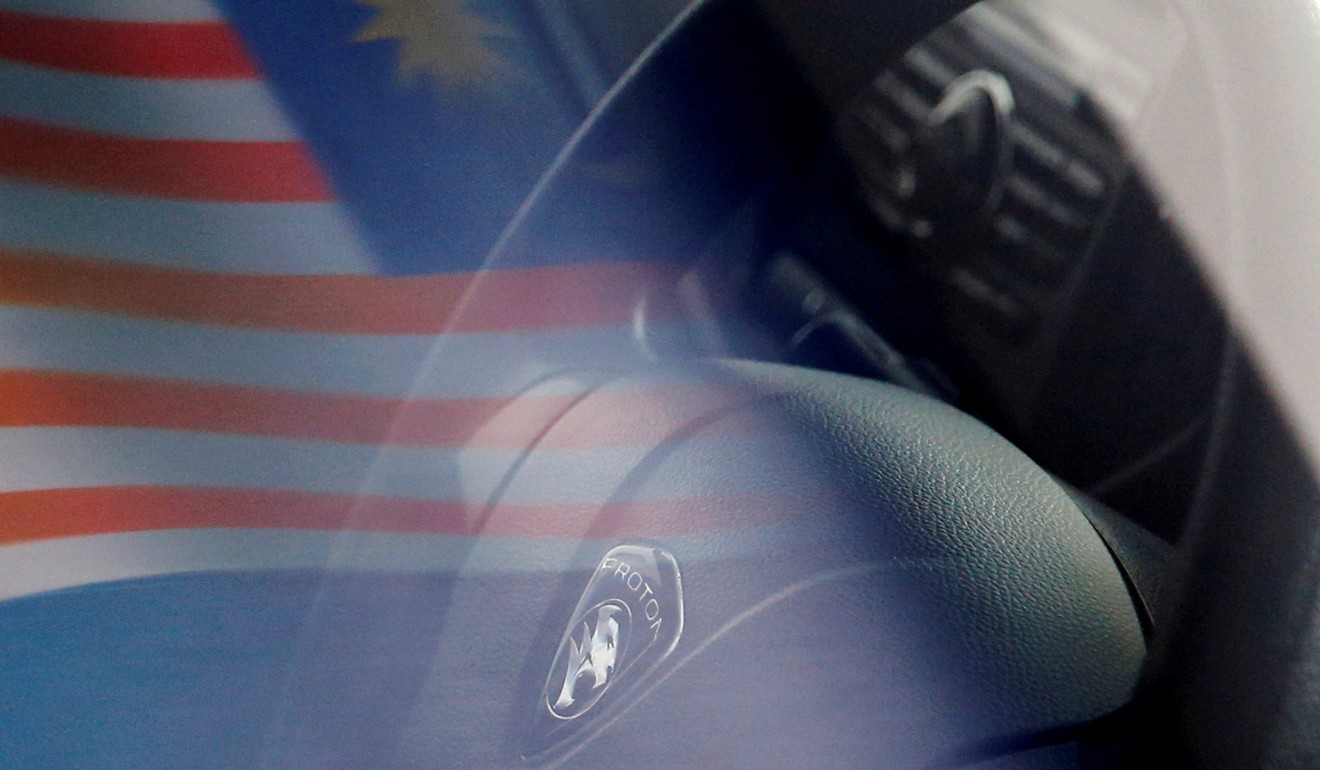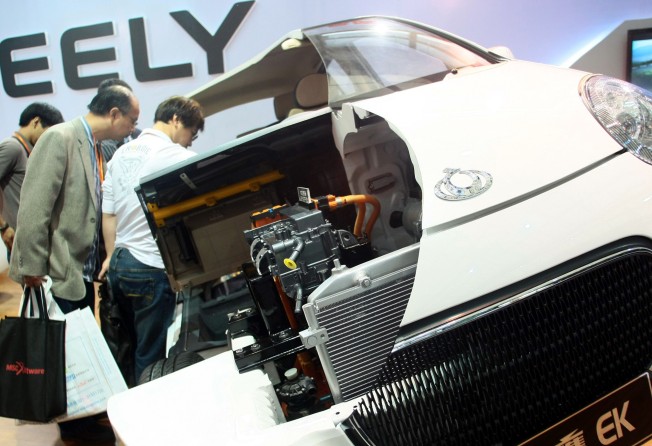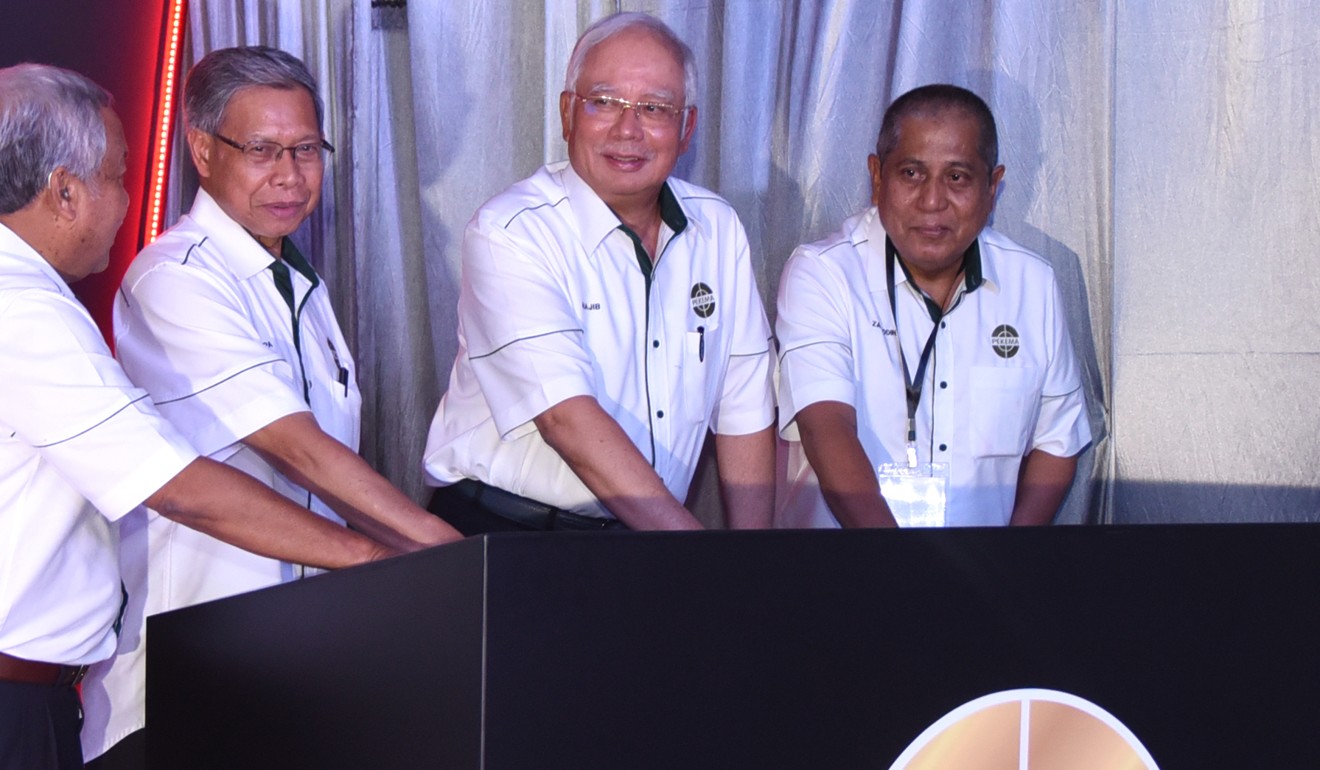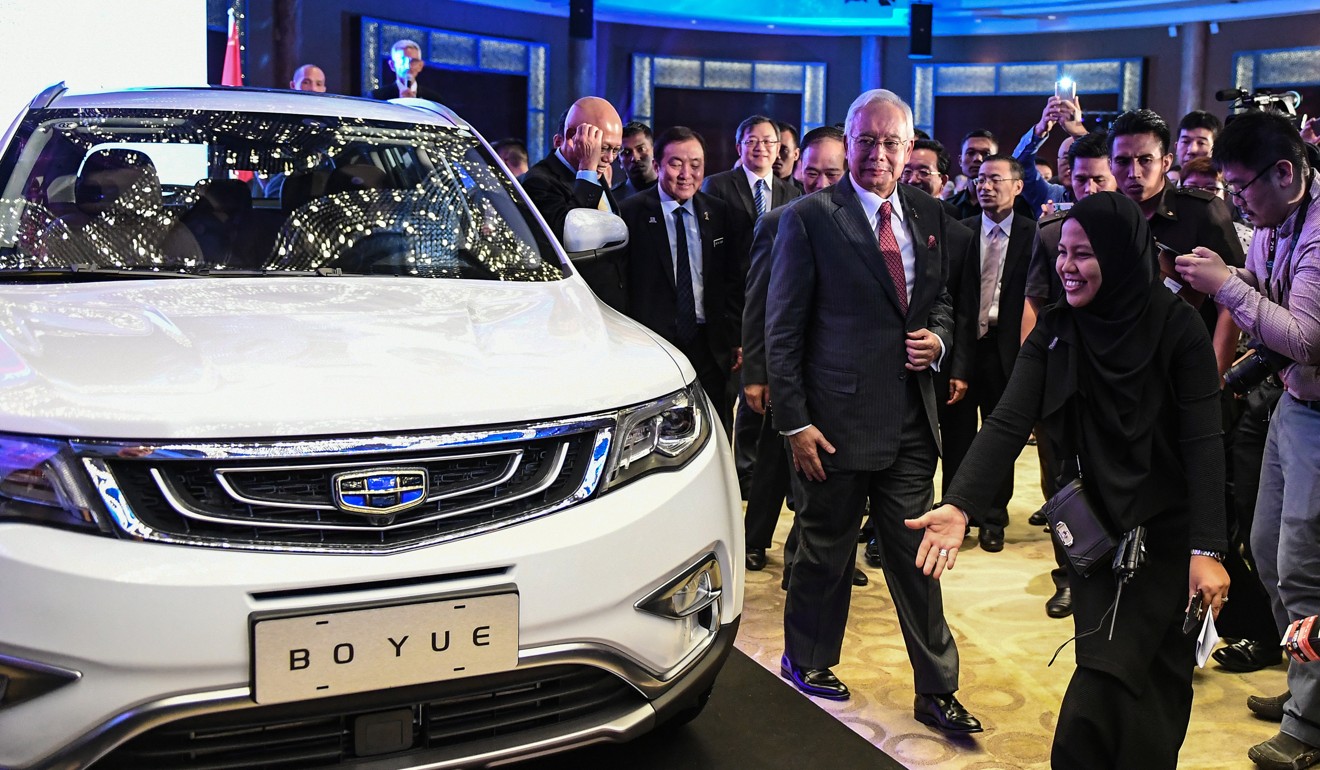
Is Chinese carmaker Geely being anti-Malay in cost-cutting drive at Malaysia’s Proton?
It is just trying to turn over the fortunes of a national icon long in the red, says Geely as complaints from dealers told to smarten their act take on racial overtones that it is neglecting affirmative policy of favouring bumiputra

Proton, the long-ailing Malaysian carmaker partly acquired by China’s Geely last year, is under fresh scrutiny after Malay car dealers this week accused the company’s new management of being tone-deaf to affirmative action policies favouring the majority ethnic group.
The criticism prompted a key government minister to vow to intercede amid concerns the company could become a lightning rod for discontent against Prime Minister Najib Razak’s ruling coalition in an upcoming election.
Online, commentators panned the racially charged accusation as emblematic of a crutch mentality, while Proton – in the red for years – defended its cost-cutting measures at the centre of the controversy.
Geely’s 49.9 per cent acquisition of Proton last May was immediately followed by sweeping changes at the company, with vendors who provide parts asked to slash prices and dealers ordered to offer enhanced services.

While the measures elicited grumbling within the industry, neutral observers say they were necessary for the company to return to profitability and arrest a reliance on government bailouts.
But Zainudin Abdul Rahman, the president of Pekema, the association of Malay vehicle importers and traders, in an interview suggested the new approach would force ethnic Malay, or “bumiputra”, dealers to close shop, and urged the government to intervene.
The bumiputra (“sons of the soil”) policy – in place since the early 1970s – offers wide privileges in business and education to ethnic Malays and tribespeople in Borneo, who together make up two-thirds of Malaysia’s population of 31 million.
The government says the policy is necessary to bridge a wealth gap between the majority Malays and the local Chinese community, after racial riots in 1969.
“We ask that Proton and the government take note of the importance of the bumiputra agenda which is no longer a priority to the new Proton management,” Zainudin was quoted as saying in the influential Utusan Malaysia newspaper on Sunday.

He added: “We see that Proton has strayed from its original objective. We are worried that Proton is being fully controlled by Geely.”
One of Pekema’s top grievances was the demand for Proton dealers to expand facilities in their premises to provide a so-called 3S service of integrated sales, after-sale services, as well as sale of spare parts.
Zainudin claimed in the interview that bumiputra dealers lacked the financial resources to make the upgrade. “Non-bumiputras” were poised to dominate the Proton dealership sector if the new policy was left unchecked, he said.
In a five-page response to Zainudin’s interview, Proton set out a detailed explanation of its new direction, and said it offered aid schemes to help dealers make the upgrade by 2020.
Online, commentators lampooned Zainudin for perpetuating a “crutch mentality” among the Malay dealers.
“Surely the bumiputras who are hard-working and have initiative shouldn’t find upgrading their outlets from 1S to 3S a problem,” wrote one reader on the Malaysiakini.com website.
“Only those who are waiting to be fed would face problems.”
The government, with eyes on polls in which the Malay vote is expected to be decisive, was more circumspect.
Trade and industry minister Mustapa Mohamed on Tuesday said the government was concerned by the complaint, and pledged to meet Pekema.
“Transformation has not always been a walk in the park … there will be parties who are going to be affected and the government is concerned about this issue,” Mustapa was quoted as saying in local media.
But with Proton in private hands, there is little the government can do, observers say.
Hezeri Samsuri, managing editor of motoring portal Careta.my, said Pekema’s accusations were perceived by the market as being part of an “arm-twisting plot” to tap a special government endowment fund for soft loans.
Awang Azman Awang Pawi, a Malaysian political analyst, characterised Mustapa’s pledge as a “political move”.
“There is nothing he can do as this is a corporate matter,” the University of Malaya politics professor said.
Proton is majority-owned by DRB-Hicom, a conglomerate controlled by the Malaysian businessman Syed Mokhtar Albukhary.
A brainchild of the former strongman prime minister Mahathir Mohamad – now Najib’s nemesis – Proton was founded as a state-owned entity before it was passed into the stewardship of DRB-Hicom.
Still, it has regularly relied on government handouts to settle debts with vendors. In its heyday the carmaker accounted for some three-quarters of new cars in Malaysia annually, but in 2016 that figure stood at just 12.5 per cent.
Mahathir-era protectionism policies favouring Proton played a large part in the company’s early success, experts say. The former leader last year bemoaned the sale of the company to Geely as “the beginning of the great sell-out” of the country’s economy by Najib.
In its statement, Proton said the entry of Geely – which owns Sweden’s Volvo Group – gave the company a vital shot in the arm.
Declines in sales since 2000 had hurt investments in research and development, causing the company to fall behind its competitors in terms of technology and competitiveness, Proton said.

As part of the deal last year, Geely injected 170.3 million ringgit (US$40 million) into Proton and later this year will begin sales of its Boyue model in Malaysia.
The introduction of the sports utility vehicle is seen as a key plank of the Chinese company’s master plan to revive Proton. “Proton reiterates its intention is to prosper instead of to burden the dealers. The journey is long-haul,” the carmaker said in its statement.
That the road ahead will be paved with politics is also becoming clear.